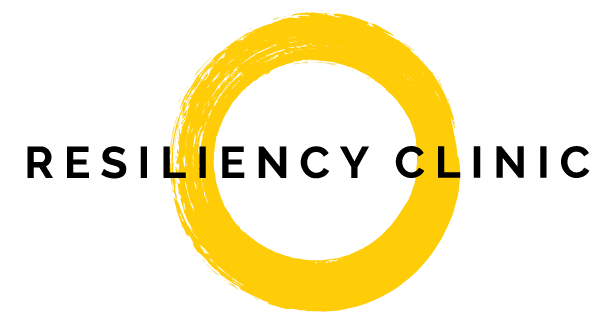Aaron Beck a fondé l'approche de la TCC et d'autres leaders dans notre domaine ont fait avancer ce travail. J'ai eu la chance, au cours de mes premières années de pratique, de recevoir beaucoup de formation de la part de deux psychologues formés et encadrés directement par le Dr Beck (le Dr Christine Padesky et le Dr Brian Shaw) et j'ai à cœur d'aider d'autres thérapeutes et clients à mettre en pratique cette approche étonnante.
Dans notre programme de groupe, Camp d'entraînement à la résilience, nous utilisons le manuel Mind Over Mood pour la TCC, écrit par le Dr Christine Padesky et le Dr Dennis Greenberger, pour nous enseigner le processus de changement de nos pensées afin de changer nos humeurs. En thérapie individuelle, nous sommes toujours attentifs à la façon dont les pensées influencent les humeurs telles que la dépression, l'anxiété, la colère, la culpabilité et la honte. Au cours de notre vie, nous développons des pensées et des croyances qui peuvent alimenter et maintenir des comportements problématiques et des symptômes physiques.
Nous ne pouvons pas simplement faire disparaître les pensées négatives, nous devons progressivement les équilibrer et les remplacer par des pensées plus réalistes.
La TCC ne se limite pas à une pensée "positive", mais vise à développer une pensée plus équilibrée et plus réaliste.
Dans le cadre de la TCC, nous examinons les schémas de vie d'une personne à travers cinq composantes : son environnement, ses pensées, ses humeurs, ses comportements et ses symptômes physiques. Nous essayons ensuite de déterminer où commencer à apporter les changements qui déclencheront une interaction plus positive entre les autres composantes. Par exemple, une personne qui se sent déprimée peut avoir besoin de modifier son comportement, comme prendre ses médicaments tous les jours ou faire une promenade, afin de stabiliser son humeur. Ensuite, elle pourra peut-être commencer à travailler sur le changement de ses pensées. Une autre personne très anxieuse devra peut-être commencer par équilibrer ses pensées avant de modifier un comportement problématique comme l'évitement. Chaque client et chaque problème sont différents, ce qui nécessite une approche personnalisée à chaque fois.

Nos pensées sont compliquées et pourtant, d'une certaine manière, le changement est vraiment simple.
Un peu mieux, c'est toujours mieux. Nous commençons donc par des objectifs réalistes et nous célébrons les réussites. Ensuite, nous nous appuyons sur chaque succès pour vous aider à atteindre votre objectif global en thérapie. C'est un véritable honneur de voir nos clients évoluer et développer des compétences à long terme pour les aider à se sentir mieux !






